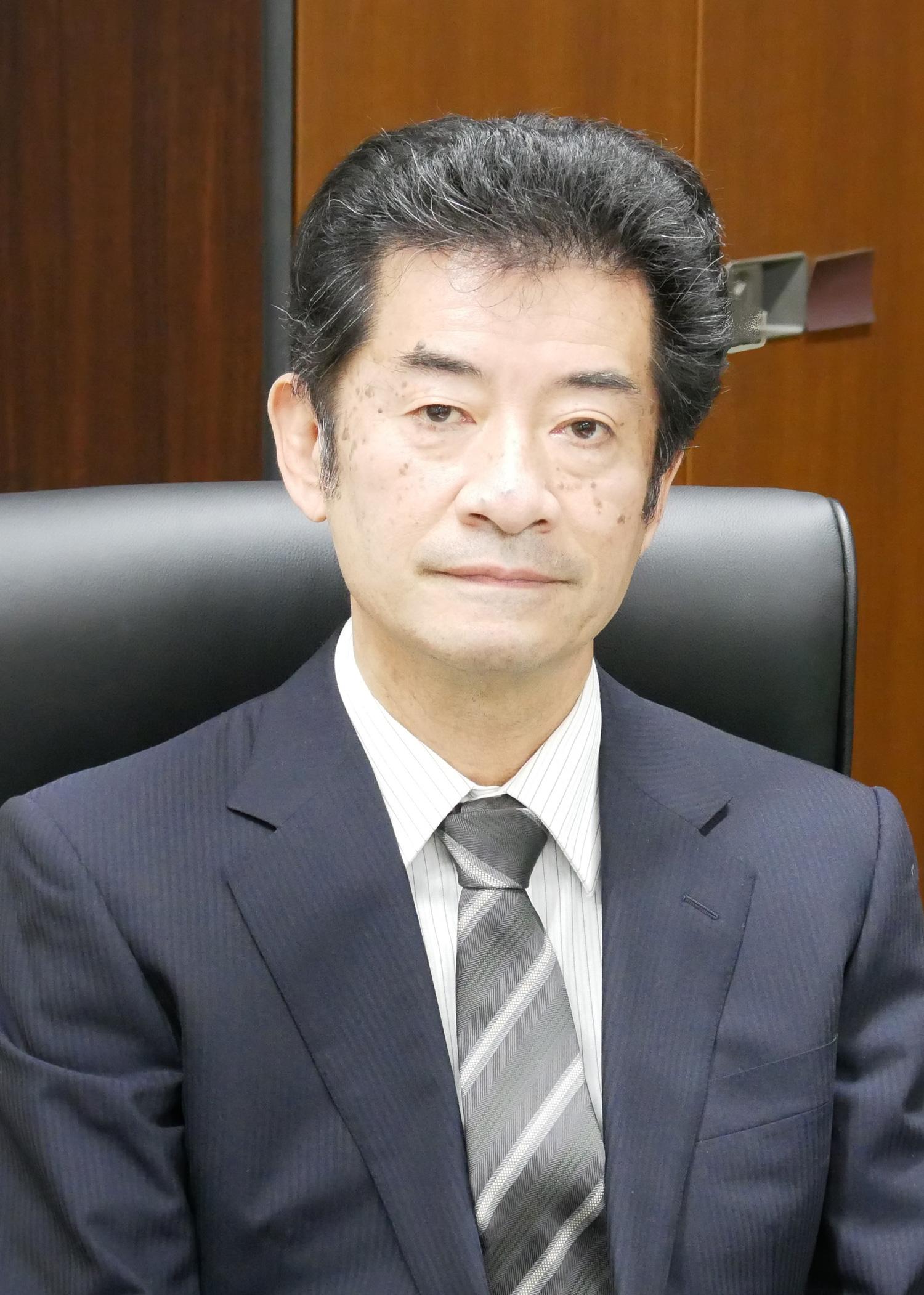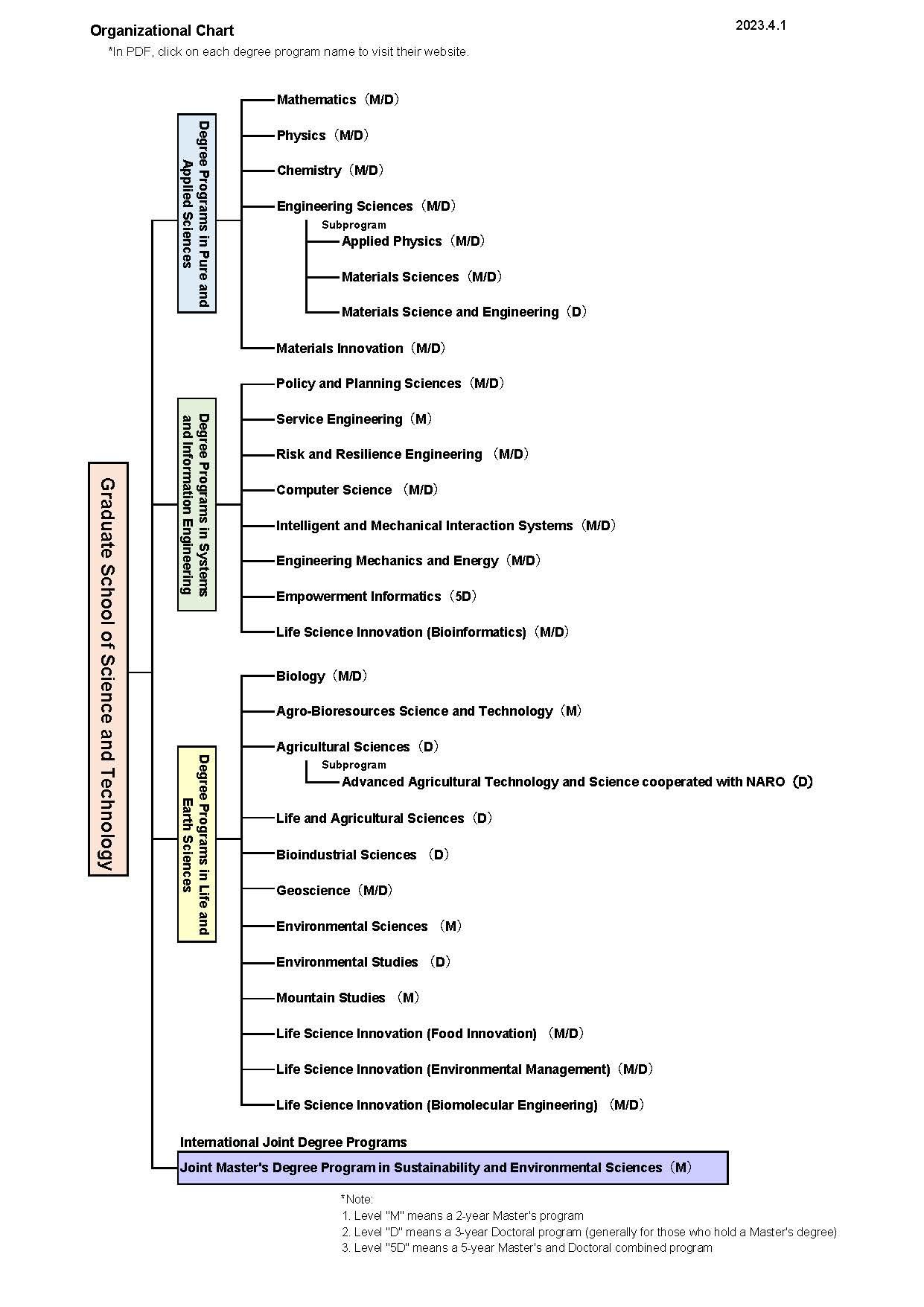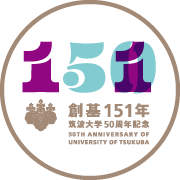Academics
Graduate School of Science and Technology
The Graduate School of Science and Technology was established in Academic Year (AY) 2020 with the purpose of engaging in multi-faceted education and research, from the fundamentals to applications, on a wide range of issues related to the mathematical and natural sciences, information literacy, and social technology. In accordance with the AY2020 organizational restructuring of the University's graduate schools, three schools under the previous system—the Graduate School of Pure and Applied Sciences, the Graduate School of Systems and Information Engineering, and the Graduate School of Life and Environmental Sciences—were taken as the basis for the formation of three degree programs, namely, the Degree Programs in Pure and Applied Sciences, the Degree Programs in Systems and Information Engineering, and the Degree Programs in Life and Earth Sciences. Under the previous system, fields such as science, engineering, information literacy, biotechnology, and AI were dispersed; joining them under one Graduate School has enabled smoother interactions between various fields, facilitated students' acquisition of shared scientific common practice and more efficient learning of fundamental and specialized knowledge, and created a multi-faceted educational system capable of flexibly responding to social developments. This restructured system allows students to take classes in related fields beyond their degree program and to engage with similarly wide-ranging internships and research guidance (sub-supervision), thereby achieving the development of human resources who can contribute to the rapid development of science and technology.
Furthermore, the Joint Master's Degree Program in Sustainability and Environmental Sciences, which was positioned under the Graduate School of Life and Earth Sciences in the previous system, is now established in line with institutional requirements as a course equivalent to a major through an international educational course coordinated with the Malaysia-Japan International Institute of Technology under the Graduate School of Science and Technology.
Message from the Executive Dean of the Graduate School of Science and Technology
In traditional terms, this long-named academic institute is like a merger of the graduate schools of the Faculty of Science, the Faculty of Engineering, and the Faculty of Agriculture. Let us consider for a while why the University of Tsukuba would create such a large federation.
After the long period of lockdown due to the coronavirus pandemic, everyone was anticipating a brighter future. However, unfortunately, the world we face today is full of chaos, confusion, conflict, and war. Thanks to the development of mitochondrial DNA analysis, it is now a well-established theory that the common ancestor of humans was born on the African continent. Humanity was born in one place, spread across the globe, and is now divided into groups and nations that cannot speak to each other at all, and are even killing each other. What a stupid creature we are!
Now, what is science? I learned that the etymology of the word "Sci" in "Science" means to cut into small pieces, and it seems to have the same origin as "scissors." Making creative scientific discoveries starts with slicing into pieces and looking at the minutest. It is our way of narrowing our vision, focusing our nerves, eliminating noise, and arriving at true discovery. This is the essence of the scientific method and we cannot change.
However, on the other hand, creation and development often occur at the boundaries of objects. Let us talk more! Conversation can reveal the essence of a problem, or even find a solution. Conversation is necessary across disciplines and professions. It is not easy to do so even within a university. Conversations among faculty across disciplines and among faculty, graduate students, students, and staff are also very important. We are facing the chaos of the world and the need to have conversations across disciplines and professions on a broader scale than we have now. Such conversations may help scientists contribute to the world, for example, as in the case of human origins mentioned above.
Scientists know only a fraction of the disconnected, and we call such people scientists. We should be more aware of this and have conversations. I believe this is the meaning of creating this huge federation of graduate schools.
Executive Dean of the Graduate School of Science and Technology, University of Tsukuba

Organizational Chart




